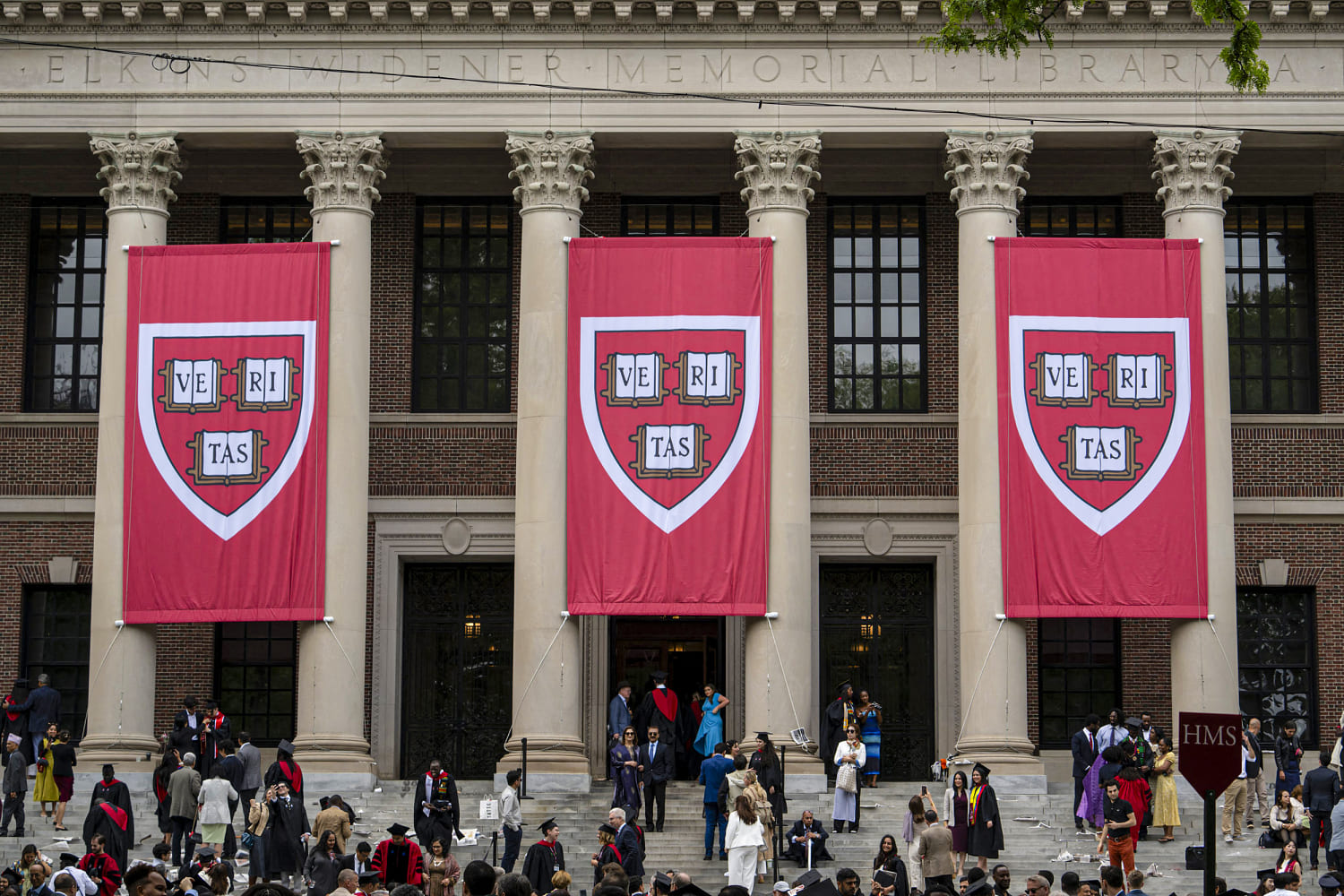
A federal judge in Massachusetts on Friday again blocked the government’s attempt to revoke Harvard’s ability to enroll international students.
U.S. District Judge Allison D. Burroughs issued the preliminary injunction, after granting a temporary restraining order against the administration. In her decision, Burroughs directed the Trump administration to “immediately” prepare guidance to alert officials to disregard original notice and to restore “every visa holder and applicant to the position that individual would have been absent such Revocation Notice.” She asked for that to be done in next 72 hours.
Because of this injunction, the Trump administration is also blocked from altering or terminating Harvard’s Student and Exchange Visitor Program certification.
The Trump administration is likely to appeal this ruling to the First Circuit Court of Appeals.
The decision comes after the Trump administration in May attempted to terminate Harvard’s Student and Exchange Visitor Program certification, which allows the school to enroll international students on the F-1 and M-1 student visas.
The school sued the government the next day, and was granted a temporary restraining order by Burroughs shortly afterward.
In a separate proclamation released earlier this month, Donald Trump said he would deny visas to foreign students who were looking to come to the U.S. with the purpose of attending the Ivy League university. The school hit back, amending its May lawsuit and asking the court to halt the proclamation’s enforcement, which Burroughs swiftly granted.
During a hearing on the injunction, Ian Heath Gershenger, an attorney for the university, accused the administration of “using international students as pawns,” and singling out Harvard. Department of Justice attorneys focused on the administration’s national security concerns, saying they did not trust Harvard to vet thousands of international students.
An attorney for the Trump administration previously said that it does not have the same concerns in regards to other schools, but that could change.
For months, the government has been entrenched in a tug-of-war with the Ivy League university. In April, the administration’s Joint Task Force to Combat Anti-Semitism announced that they would be cutting more than $2 billion in grants after the school rejected its demands, which included restricting the acceptance of international students who are “hostile to the American values and institutions.”
Harvard quickly sued the administration and accused it of seeking “unprecedented and improper” control of the school. As tensions escalated, the administration weeks later further asked all federal agencies to end their contracts with Harvard — an amount totaling $100 million.
The administration’s targeting of the prestigious university has drawn backlash from critics and free speech advocates, and support for the school from fellow institutions.
Earlier this month, two dozen universities filed an amicus brief in support of the school, arguing that the funding freeze would impact more than just Harvard, due to the interconnectedness of scientific research, and would ultimately hinder American innovation and economic growth.
And a group of 12,041 Harvard alumni, including prominent names like Conan O’Brien and author Margaret E. Atwood, filed a separate brief describing the withholding of funds as a “reckless and unlawful” attempt to assert control over the school and other higher education institutions.
